Best leaf blowers: gas and cordless models for clearing your path
The best leaf blowers will make tidying your backyard a breeze and make your garden look neat and tidy.
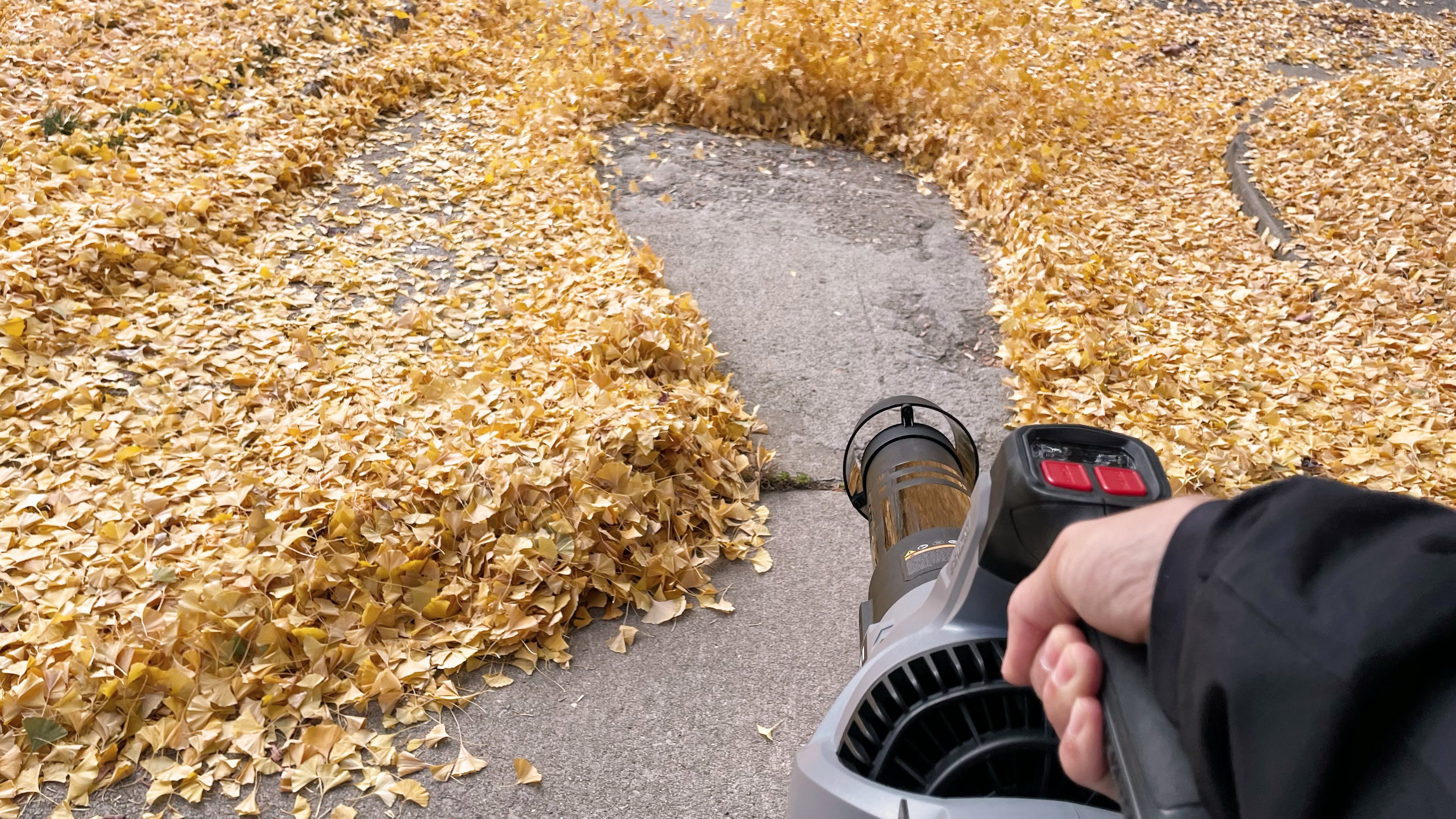
In the fall, leaves can pile up, making your yard look unkempt and messy, but luckily, you can keep your yard clean with the best leaf blowers. To help you make an informed decision, we've rounded up the best of the best from a variety of brands and models on the market.
Decide whether you will buy a gas or electric leaf blower before you buy. Gas models tend to be more powerful but heavier and require more maintenance, whereas electric ones are better for the environment and are generally lighter and quieter. There are also corded and cordless leaf blowers, and corded models are best for smaller yards, while cordless ones are better for bigger ones.
If you're on a cleaning mission, check out our guide to the best pressure washers. With our advice and recommendations, you can choose the right leaf blower and pressure washer for your needs without worrying about hard surfaces like patios and driveways.
The quick list
The following products are our top picks for the best leaf blowers available right now, from the best overall to those for more specific needs. If you're in a hurry, you can find a brief overview of our findings or keep scrolling for in-depth reviews and analysis.
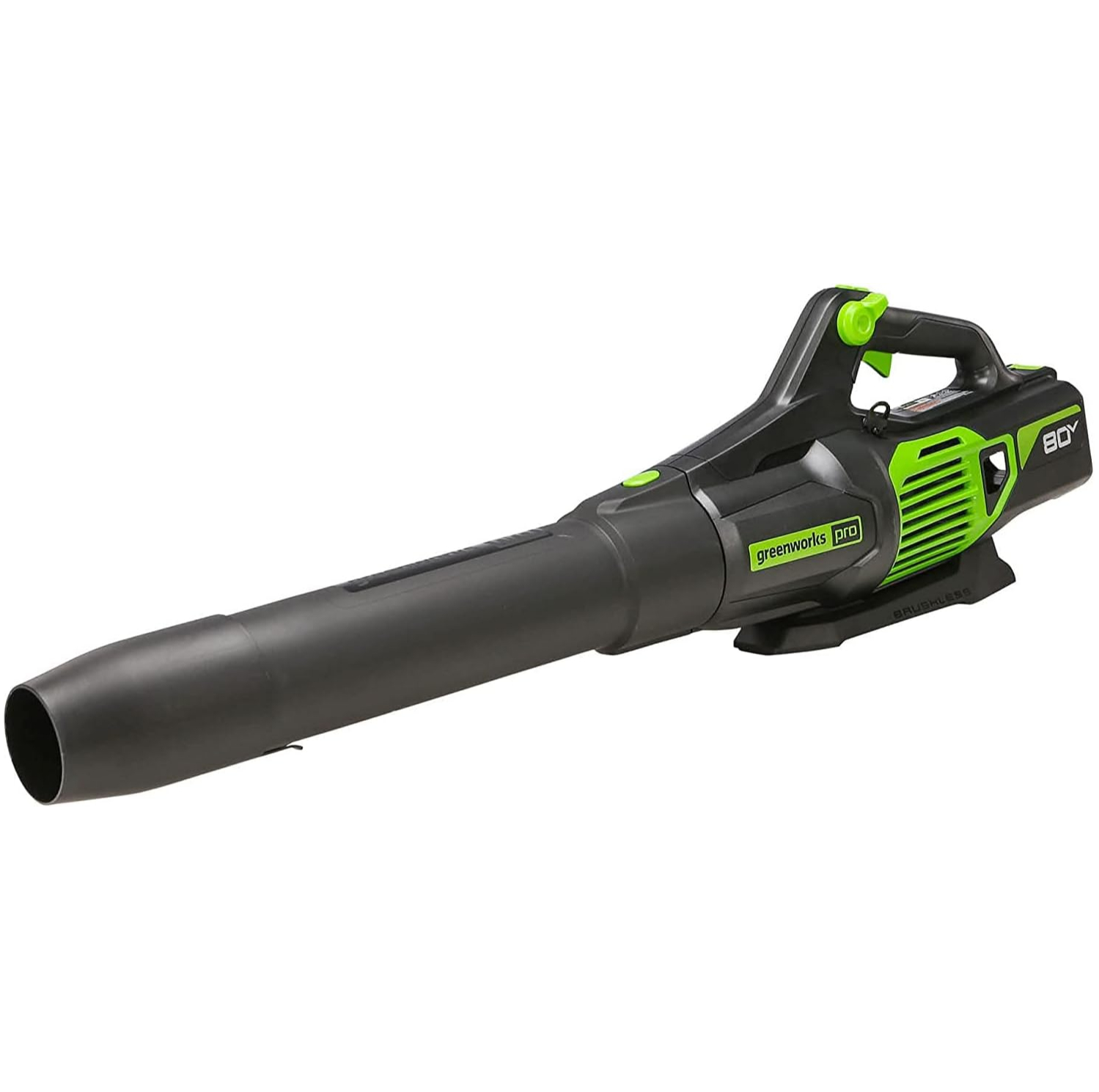
The best cordless leaf blower overall
The Greenworks Pro 80V is lightweight and easy to use. The cruise control feature is helpful for delicate areas, though the battery life falls short of the manufacturer's claims.
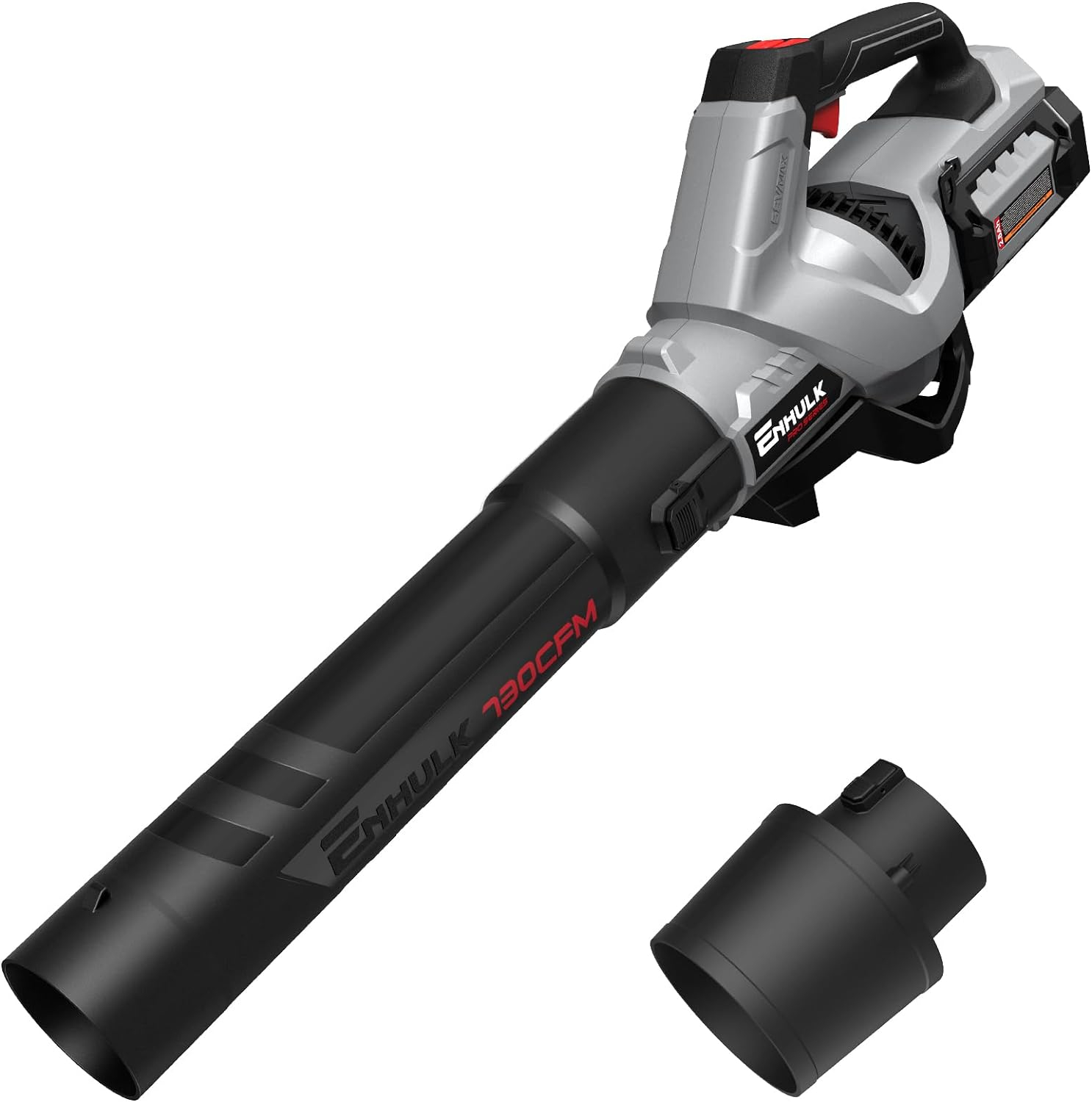
The most powerful cordless leaf blower
The Enhulk leaf blower is a versatile tool with a battery-powered design, cruise control, and a turbo button. Its nozzle options provide excellent control, and its performance is impressive.
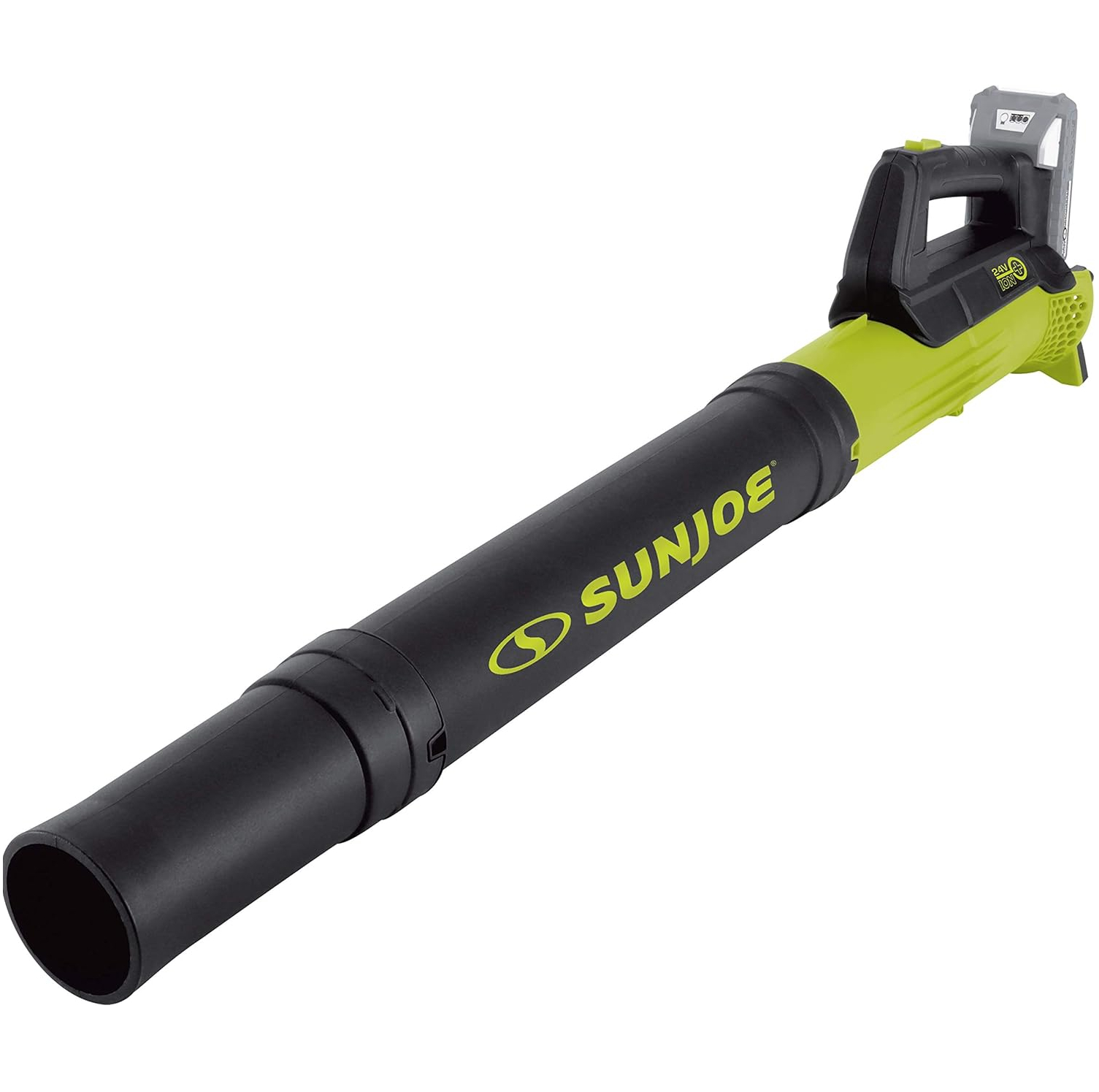
The best lightweight leaf blower
The Sun Joe Blower is lightweight and easy to use. Its 100 mph blow speed is adequate for most jobs, but its 11-minute battery life is a downside for larger yards.
Load the next products ↴
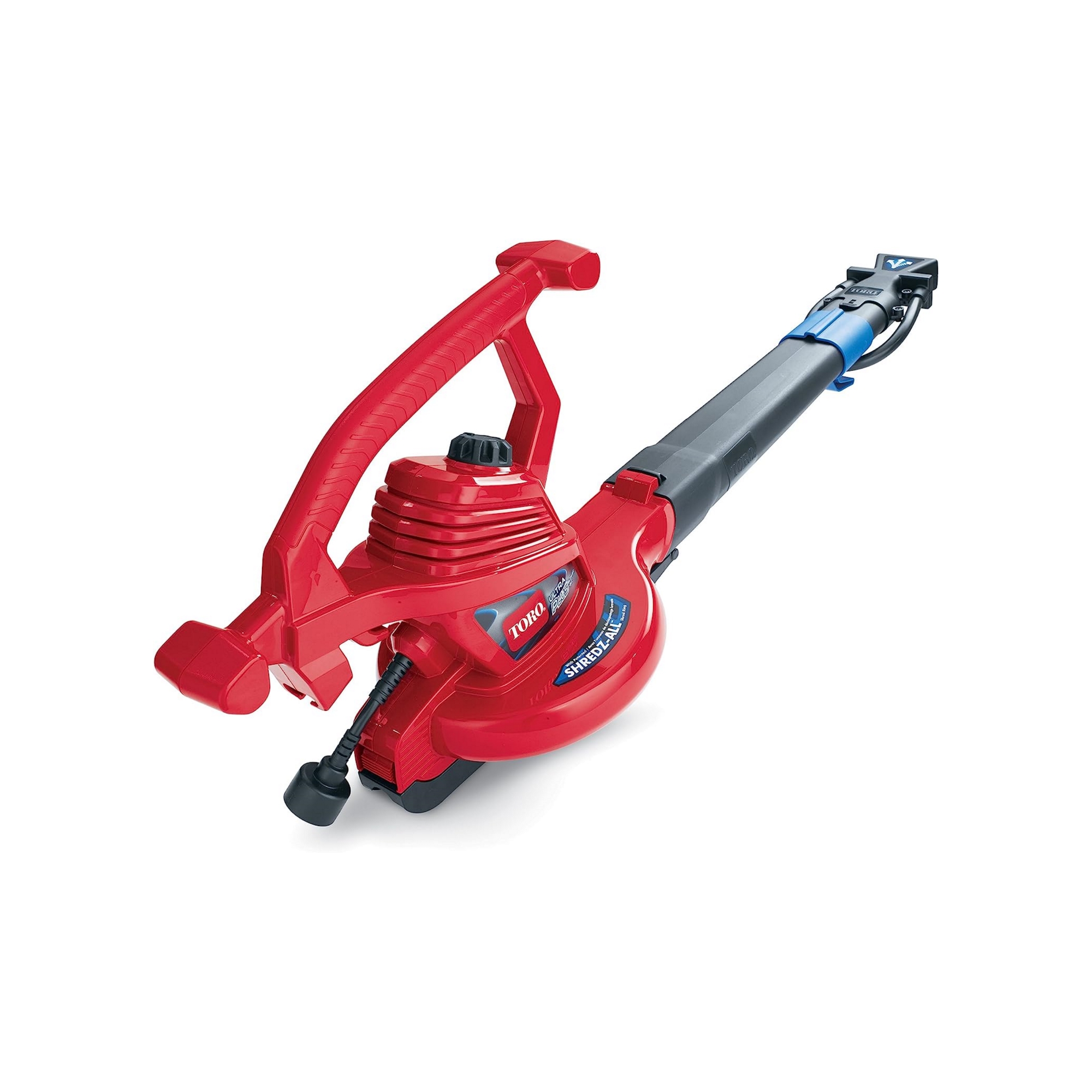
The best budget leaf blower
The Toro 51621 is a budget-friendly, versatile leaf blower that doubles as a vacuum and mulcher. It's powerful, but limited by its cord and lacks comfort features.
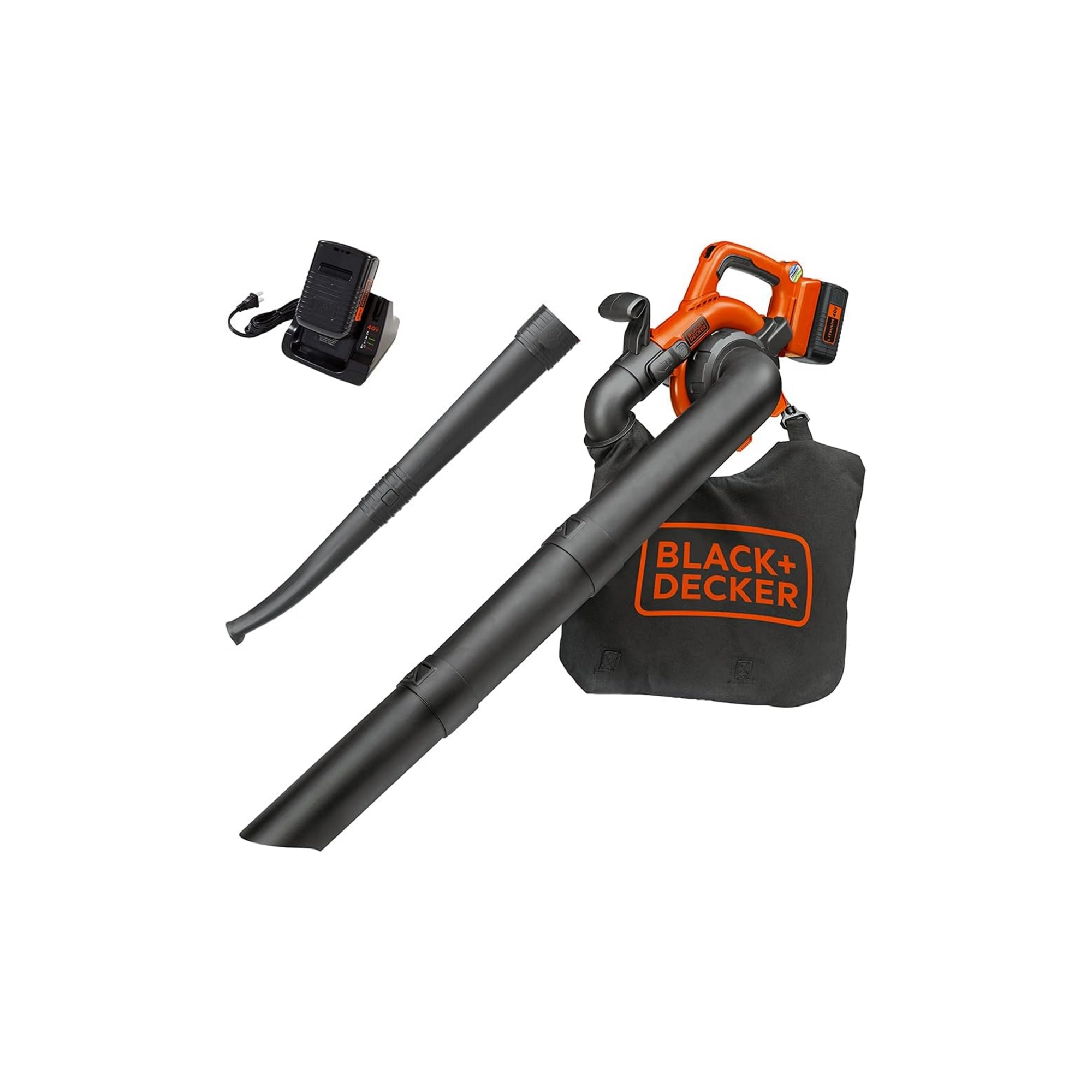
The best leaf blower for extra features
The Black & Decker LSWV36 is the best overall leaf blower due to its balance of power, quiet performance, and reasonable price. Lightweight and easy to use, it has vacuum functionality and a solid three-year warranty.
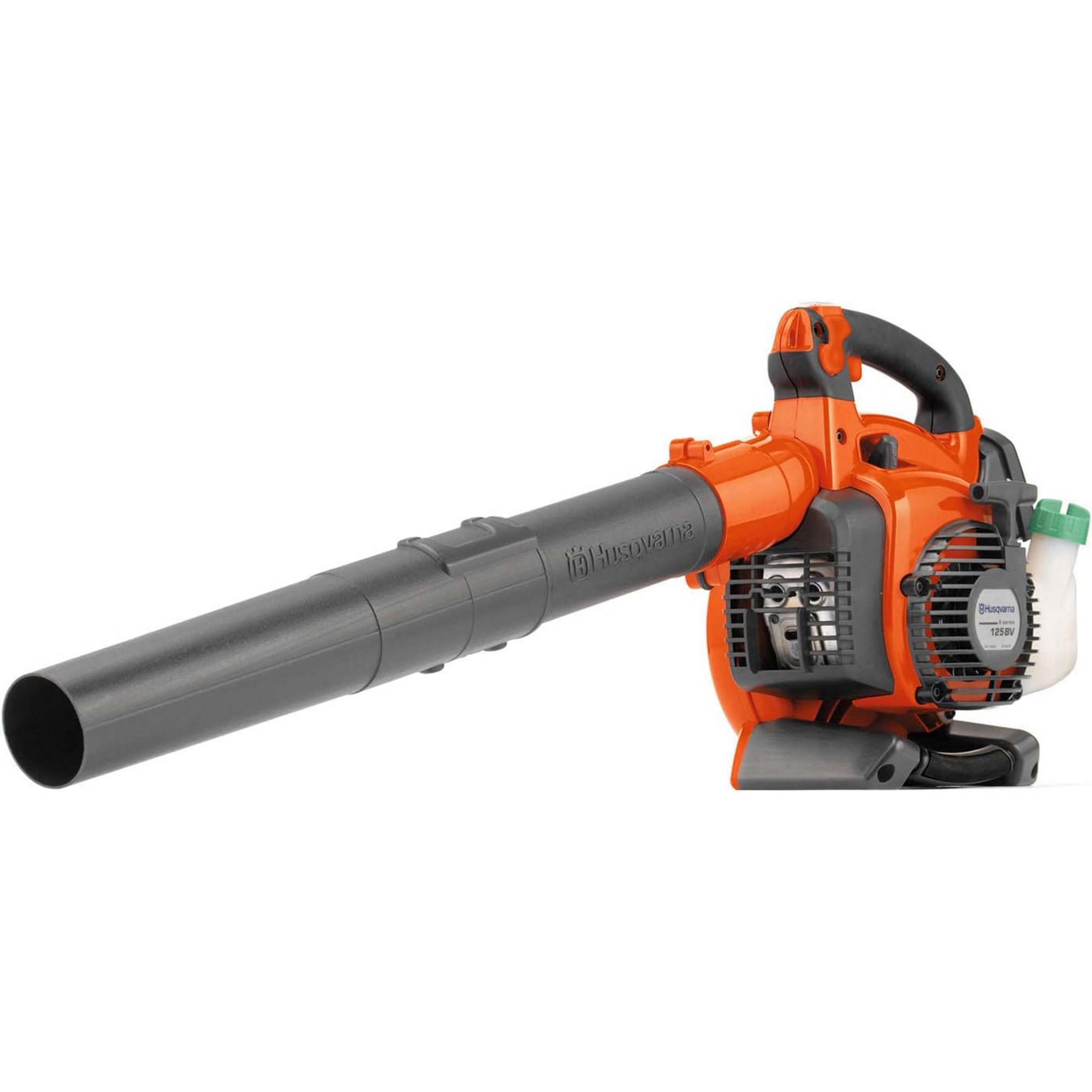
The best gas leaf blower
The Husqvarna 125BVx is versatile with interchangeable nozzles, long hose length, and mulching capabilities, but heavy and loud compared to other leaf blowers.
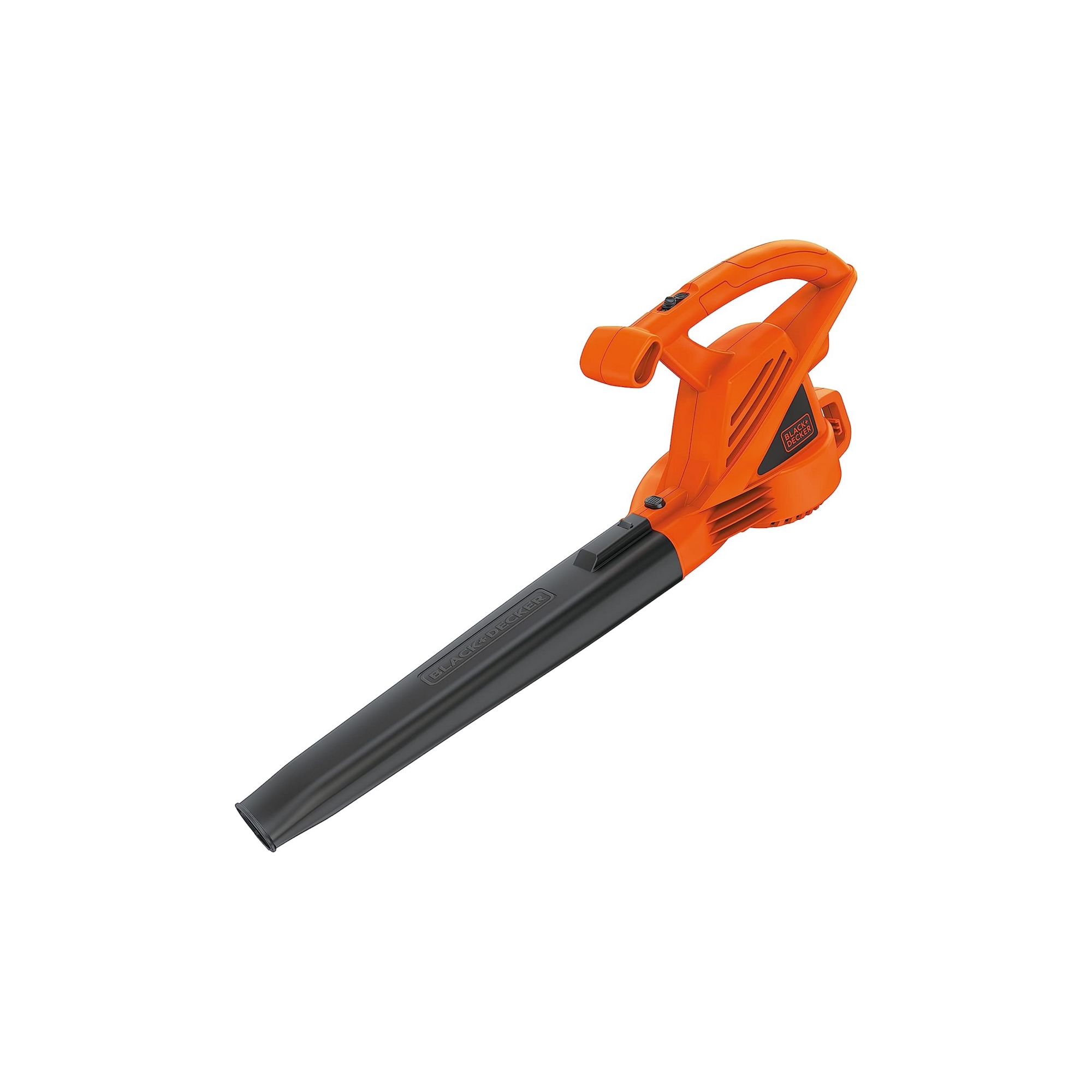
The best leaf blower for small yards
The Black and Decker 3456 is lightweight, easy to use, not too loud, and simple with no complicated settings, but it requires a power cord and is not suitable for heavy-duty use.
The best leaf blowers we recommend
Why you can trust Top Ten Reviews
The best cordless leaf blower overall
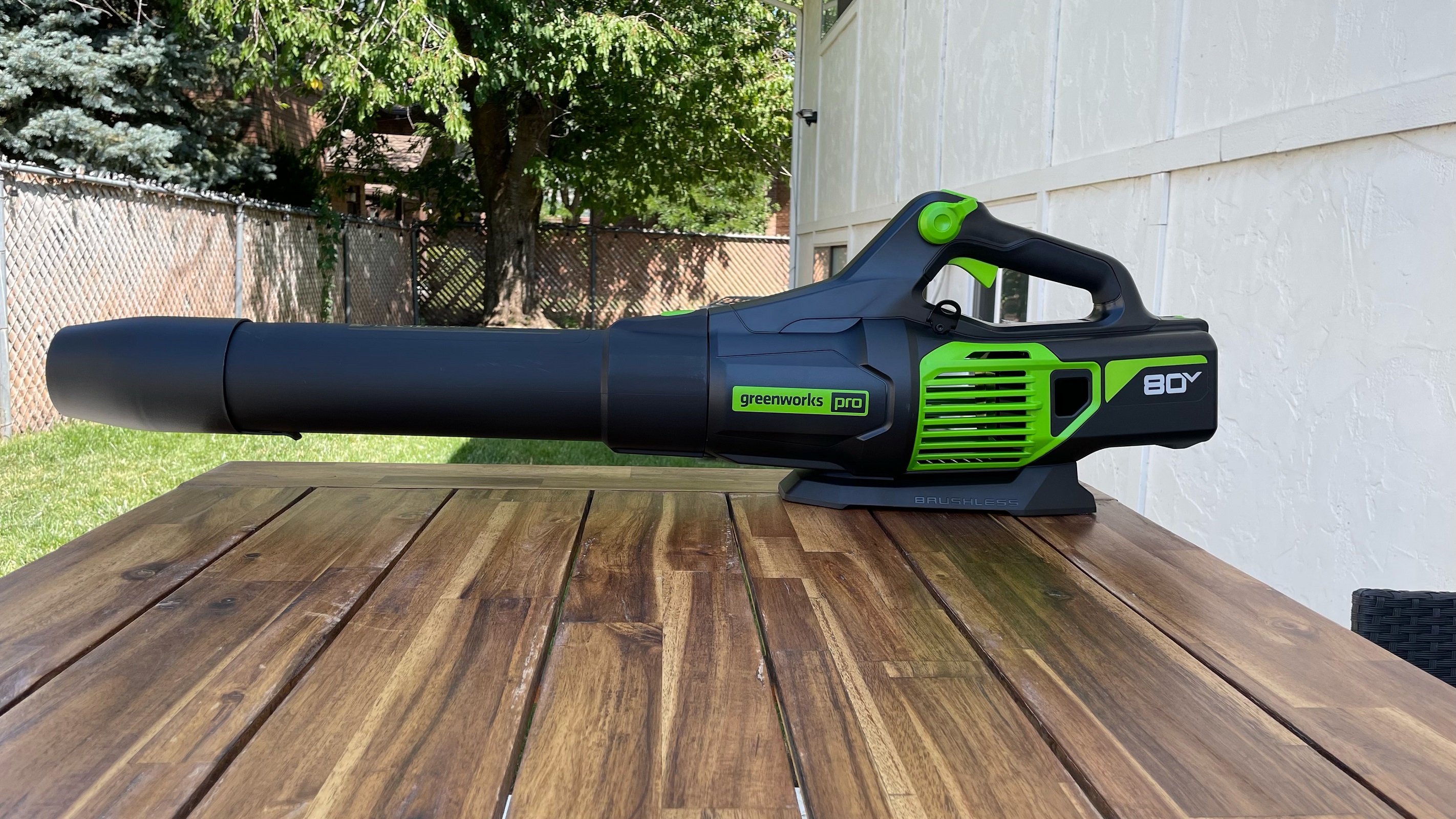
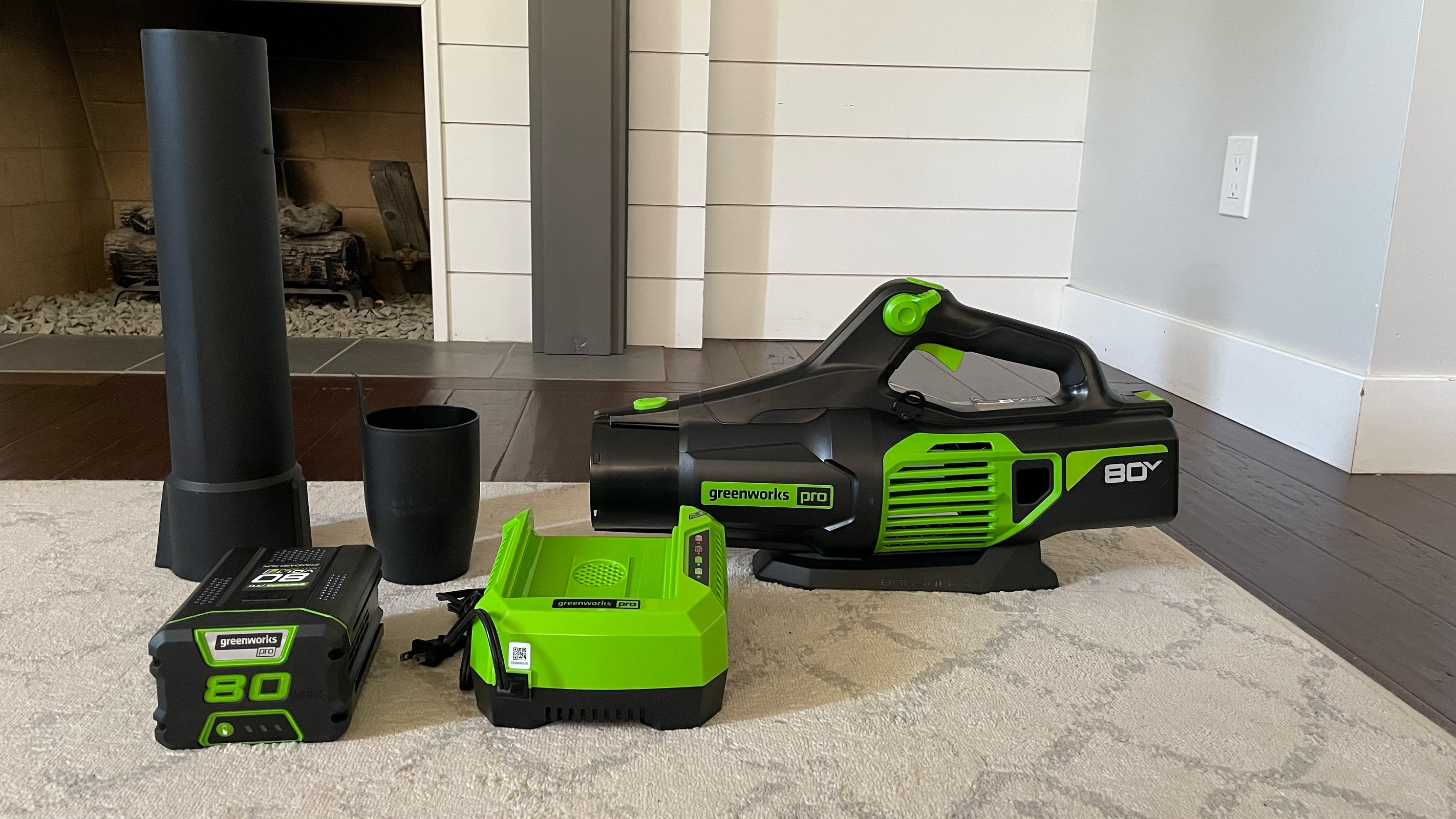
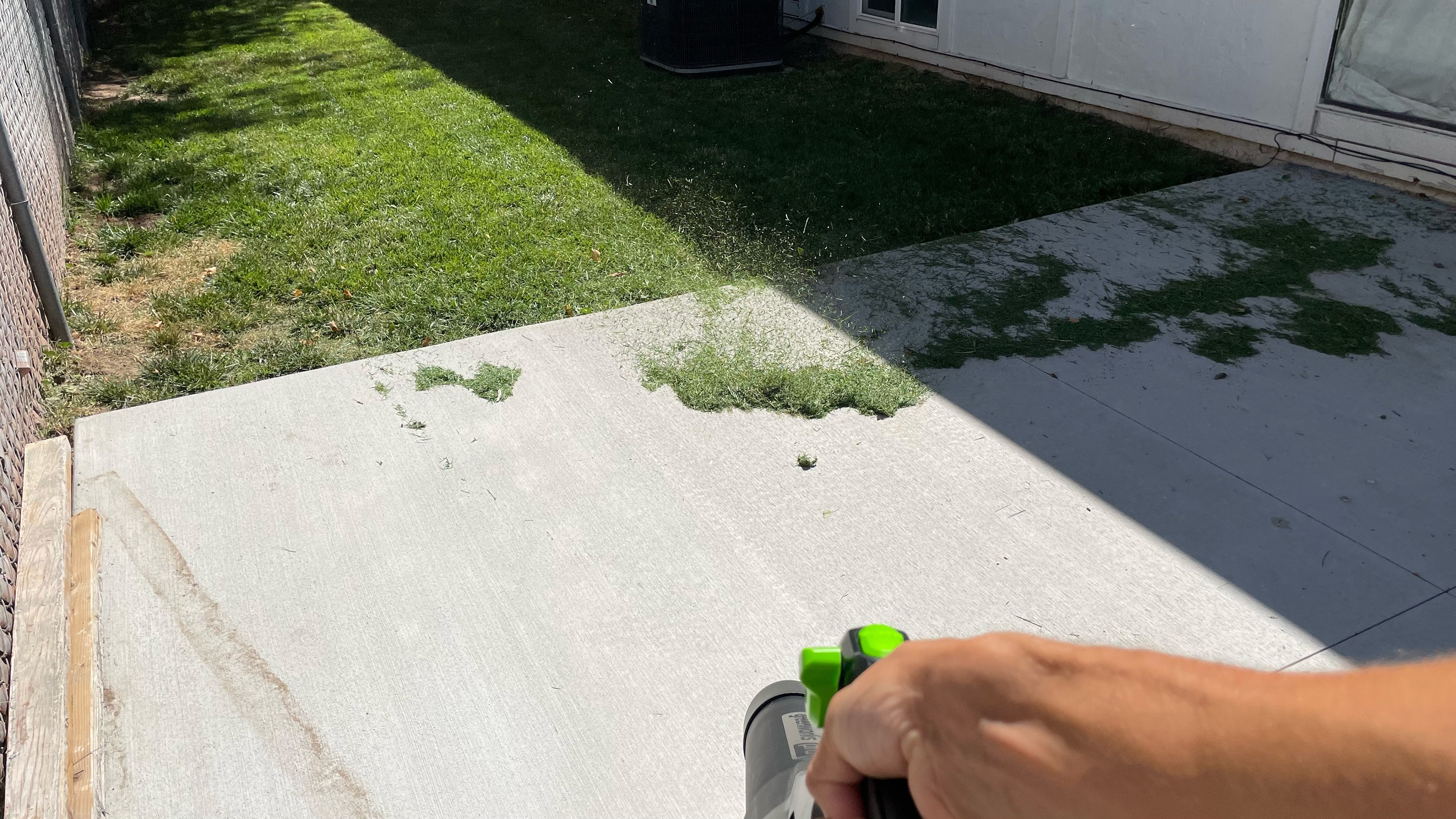
Specifications
Reasons to buy
Reasons to avoid
The Greenworks Pro 80V is excellent for general yardwork and cleanup. It could be better, but it's a solid performer with many valuable features. As someone who's used cordless and battery-powered leaf blowers, our reviewer can attest to the convenience of not having to deal with cords and outlets. It's lightweight and easy to use, and the battery lasts 30 minutes.
I liked the cruise control a lot. It's not just a "set it and forget it" feature at full blast. You can lock the trigger in any position and use it at 50% power if necessary. This is useful when working in flower beds or avoiding throwing away rocks and other things.
It didn't last as long as the manufacturer claimed it would. We couldn't use it for more than 20 minutes at full throttle before it died. However, recharge only takes about an hour, which isn't bad compared to other battery-powered tools.
There's enough power behind the Greenworks Pro 80V to blow away grass, pine needles, pine cones, and other debris. It's not as loud as some other leaf blowers, but it's still loud enough to wear hearing protection.
Read more: Greenworks 80V Cordless Brushless Axial Leaf Blower review
| Attribute | Notes | Rating |
|---|---|---|
| Price & availability | More expensive than average | 4/5 |
| Design | Love the adjustable trigger and locking knob, but the leaf blower is on the heavier side | 4/5 |
| Performance | Good air velocity, but battery life less than manufacturer states | 4/5 |
The most powerful cordless leaf blower
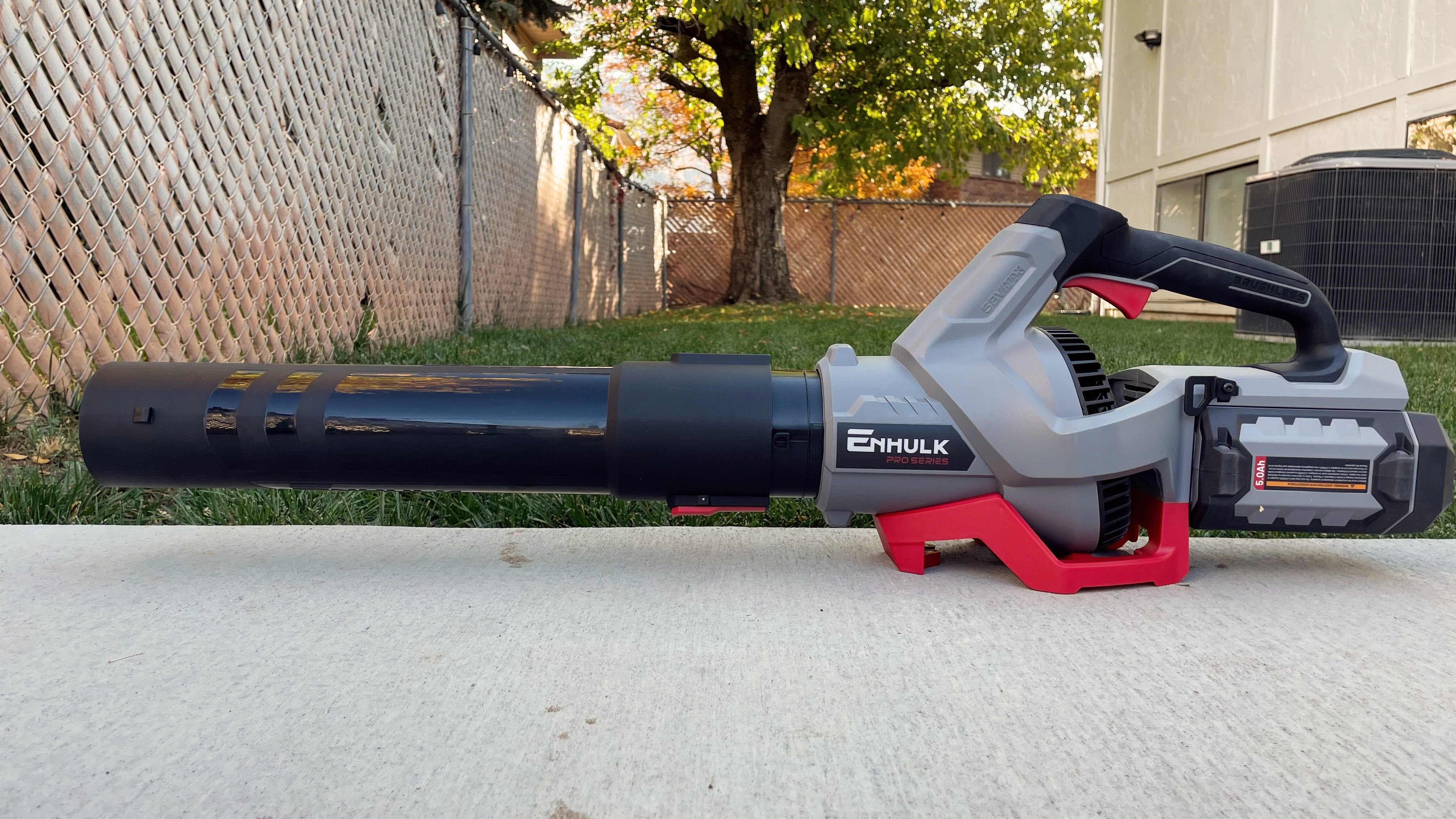
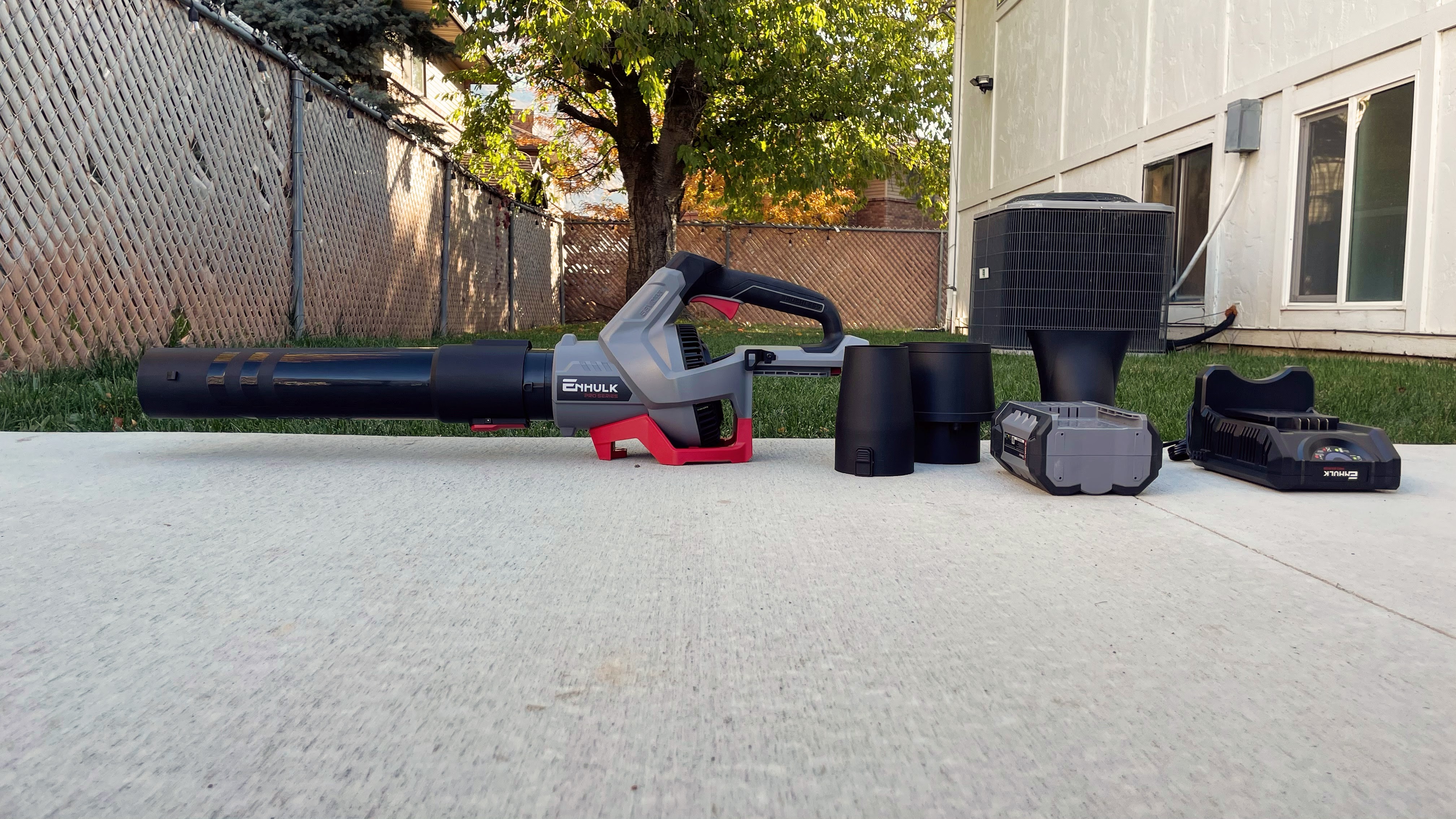

Specifications
Reasons to buy
Reasons to avoid
The Enhulk leaf blower quickly removes leaves and debris from the yard or driveway. Its battery-powered design means you won't have to worry about cords or gas fumes, and you can monitor your battery life with the five green lights on the battery pack.
Enhulk's leaf blower's cruise control button lets you keep a steady speed without holding down the trigger. Our tester liked it when using it for a long time. Turbo is another great addition, providing extra power when you need it.
Regarding nozzle options, the max air velocity nozzle was most effective for covering large areas, and the tapered nozzle proved useful for more precise control. We also appreciated the wide nozzle's ability to blow leaves onto the sidewalk with more control.
The Enhulk leaf blower performed well in the real world. It quickly removed leaves, pine needles, and debris from hard-to-reach places. On a single charge, it lasted over 20 minutes.
After extended use, the blower's weight became noticeable, but our reviewer switched hands frequently to avoid fatigue. Also, the battery takes quite a while to charge fully, but this is to be expected.
Read more: Enhulk 58V 930 CFM Leaf Blower review
| Attribute | Notes | Rating |
|---|---|---|
| Price | One of the most expensive leaf blowers around | 2 |
| Design | Love the cruise control feature and three nozzles, but connecting main tube a little frustrating | 4.5 |
| Performance | Great air velocity and adjustable air speeds provide amazing control. | 4.5 |
The best lightweight leaf blower
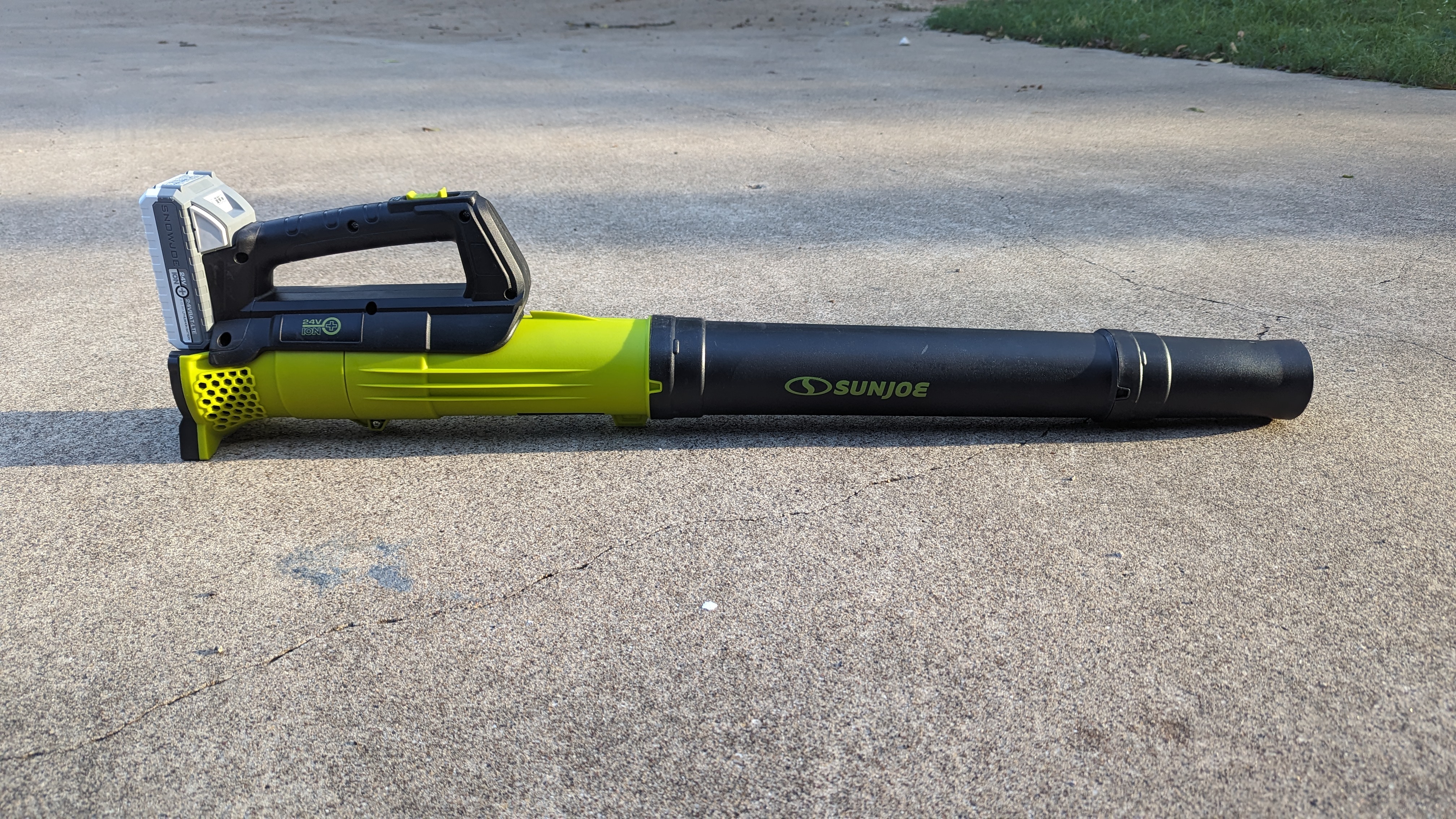
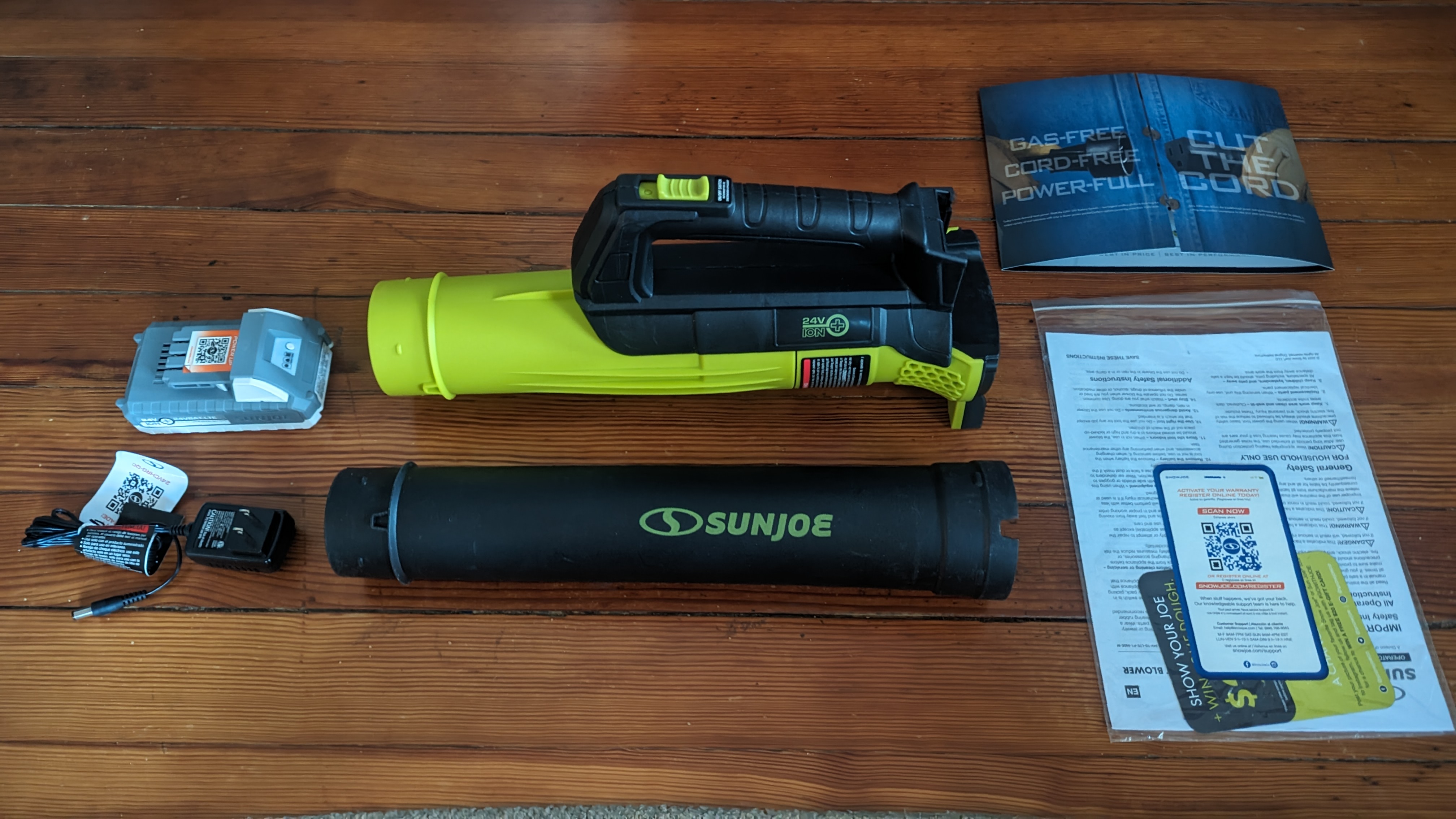
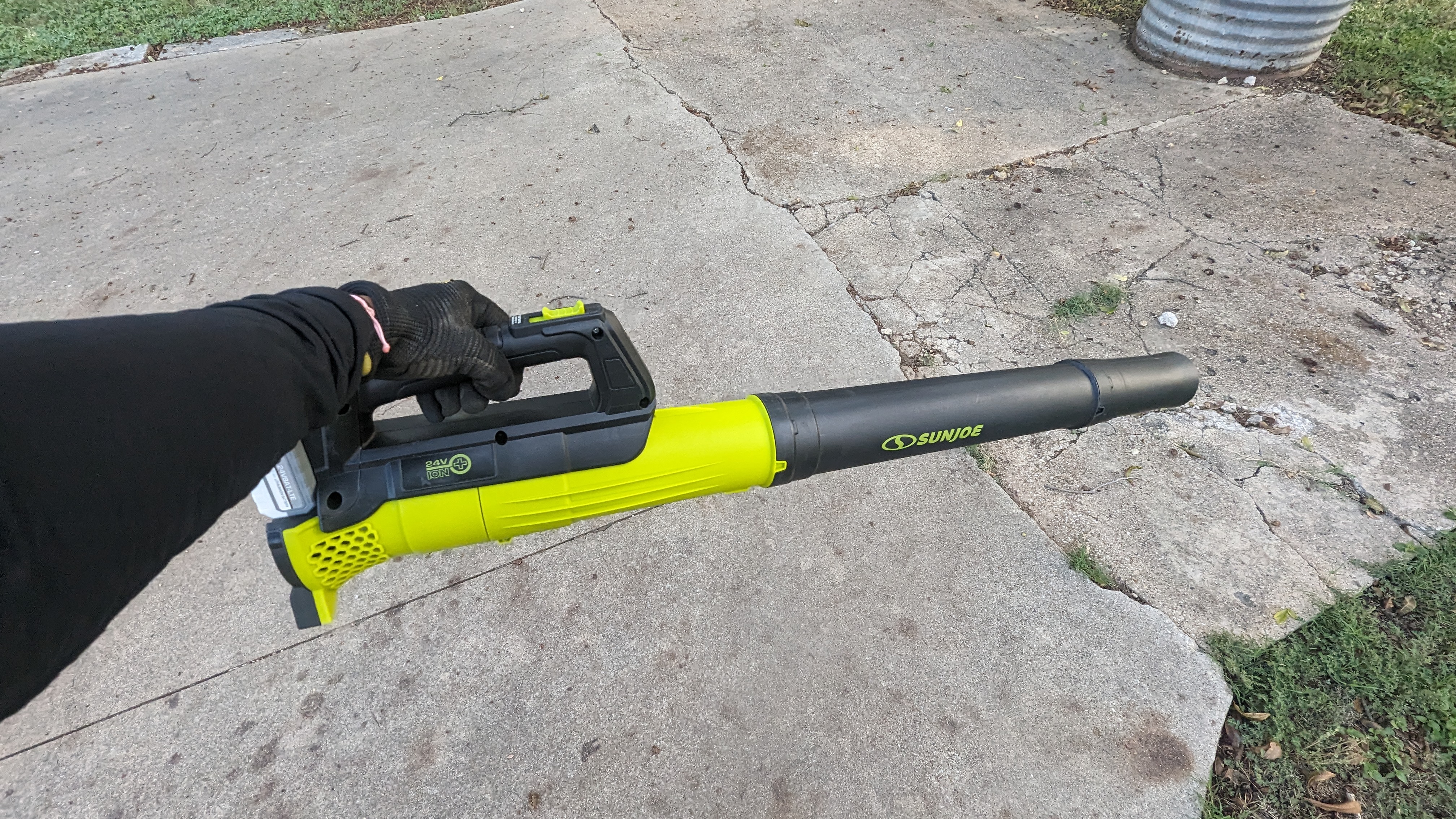
Specifications
Reasons to buy
Reasons to avoid
Its simple design and single-button operation make the Sun Joe 24V-TB-LTE 24-Volt IONMAX an excellent choice for a hassle-free leaf blower that can handle small yard jobs quickly.
Besides being lightweight, this leaf blower is easy to handle and maneuver, even for extended periods. It weighs only 4 lbs and is easy to handle. For those with bigger yards and need to blow leaves and debris a lot, it's a great choice.
The 100 mph blow speed is adequate for most jobs and does an awesome job of moving most materials in the direction you want them to go. However, you need to get close to blow things away if you're trying to blow things like large branches, rocks, and pebbles away.
The biggest downside of this leaf blower is its battery life. With a battery life of only 11 minutes, dealing with larger jobs must take longer. If you only have a small yard or just need it for quick tasks, this is fine. You need backup batteries or a charger nearby if you have a big yard.
Read more: Sun Joe 24V-TB-LTE 24-Volt IONMAX review
| Attribute | Notes | Rating |
|---|---|---|
| Price & availability | An incredibly affordable leaf blower available through multiple sellers and with or without the cost of a battery and charger | 5/5 |
| Design | A lightweight design and the single button to turn it on and off, makes this leaf blower super easy to use | 5/5 |
| Performance | At only 100 mph, this leaf blower is best for small amounts of debris, especially as the battery doesn’t last a long time | 4/5 |
The best budget leaf blower
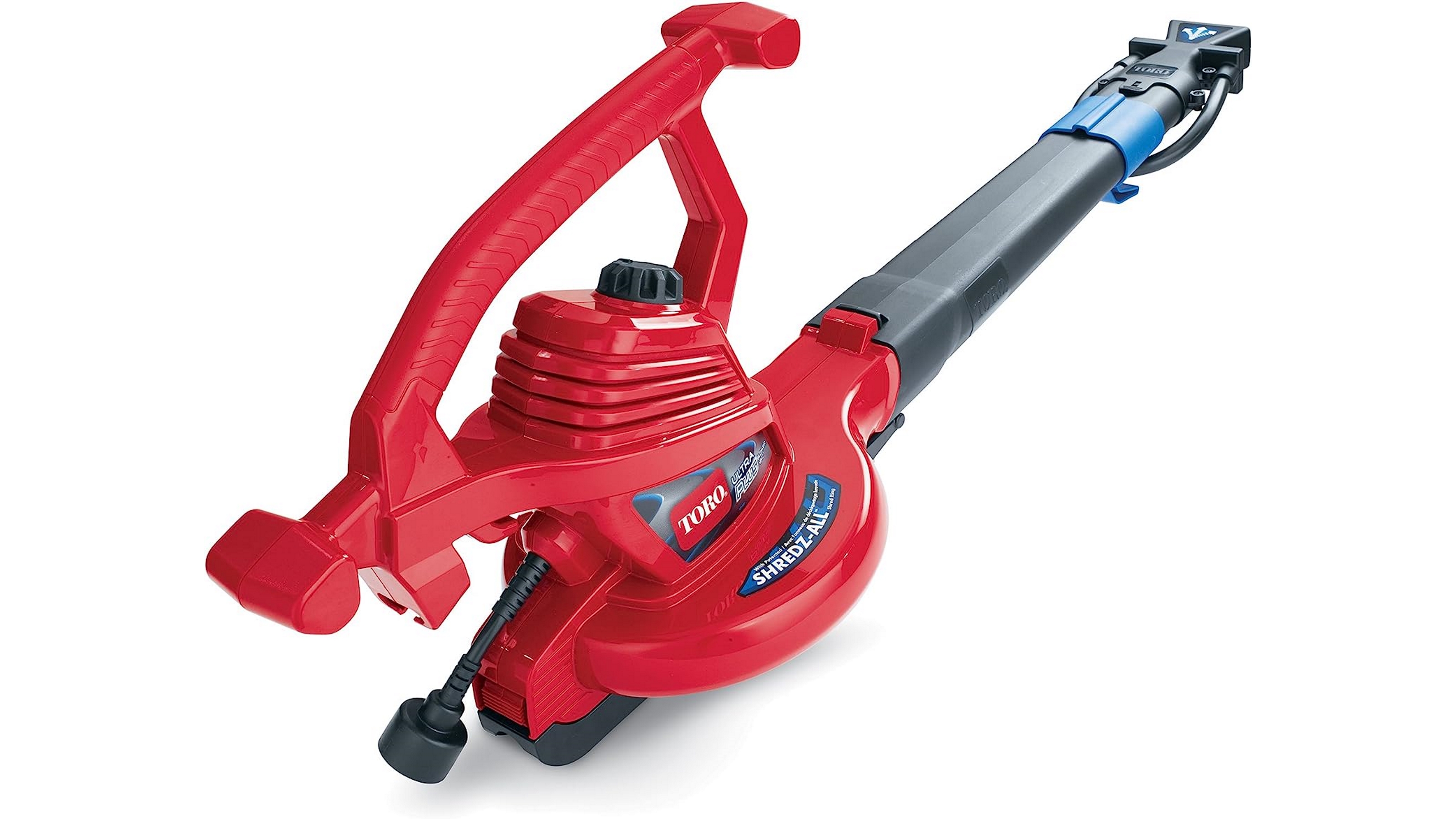
4. Toro 51621
Specifications
Reasons to buy
Reasons to avoid
The Toro 51621 is a leaf blower that won't break the bank if you're looking for an affordable leaf blower. Having a 41-inch extension, this electric blower is perfect for people who want maximum blowing and sucking power. The Toro 51621 is a versatile garden tool used as a leaf blower, vacuum, and shredder. The metal impeller shreds leaves and other debris into small pieces, so it's easier to pick up and use.
One of the key advantages of the Toro 51621 is that it's an electric leaf blower, so you won't run out of gas or battery power. The length of your extension cord limits how far you can use it. On the plus side, this blower blows air at 250 mph, the most powerful of any leaf blower we reviewed. Leaves can be pushed up to 16.8 feet, a pretty good distance.
While the Toro 51621 lacks some of the comfort features that more expensive models provide, like anti-vibration technology or a cushioned handle grip, it's still a great choice for people who don't mind a more stripped-down and basic leaf blower. There isn't much to say about this tool. It's cheap, powerful, and functional.
With the Toro 51621, you can adjust the speed to fit whatever task you're working on. A low air speed is better when moving air over sawdust, flowers, or anything else you don't want to get scattered or damaged. The blower can also be used for multiple purposes, so it's a great tool for gardening.
The best leaf blower for extra features
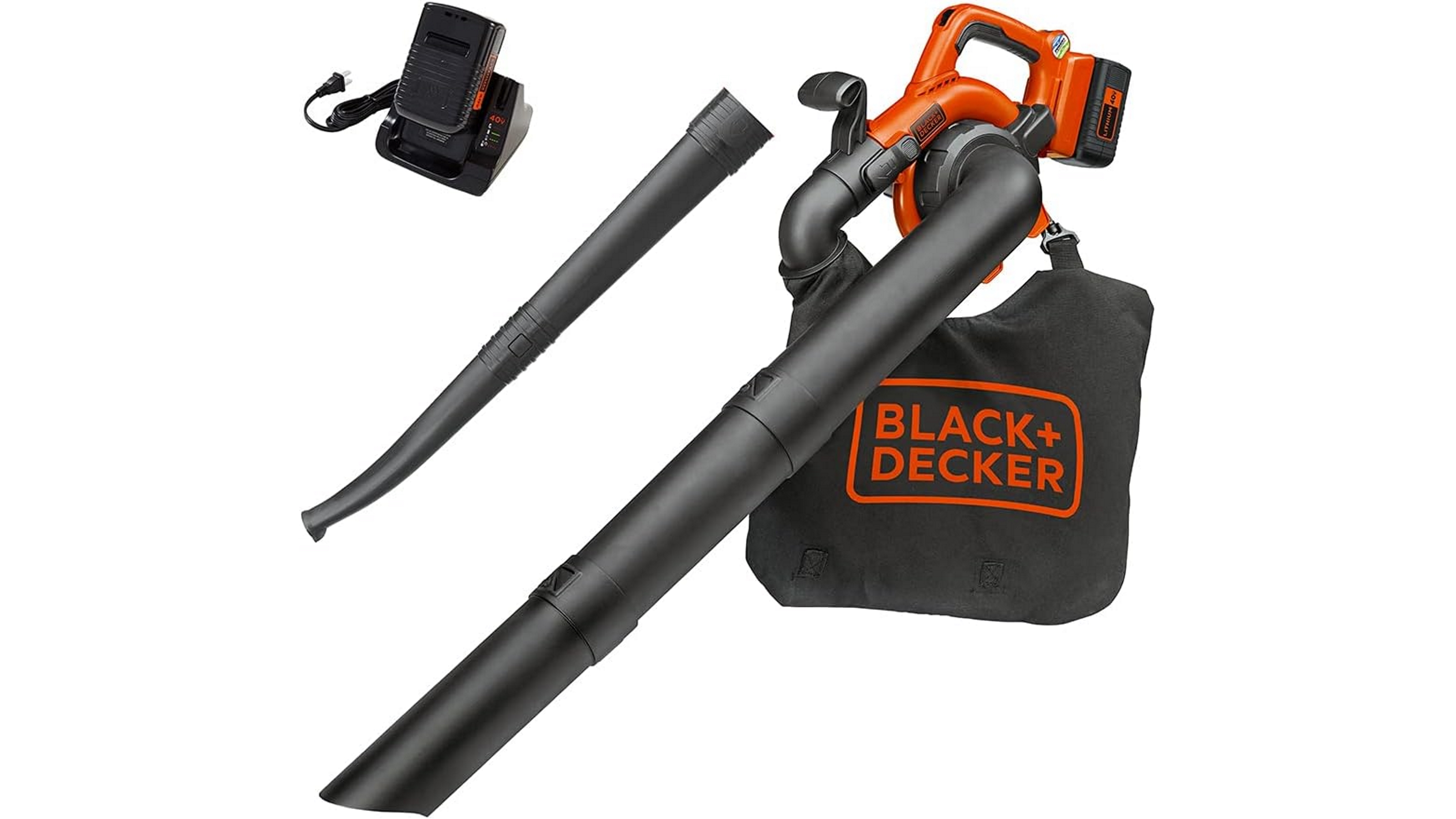
5. Black & Decker LSWV36
Specifications
Reasons to buy
Reasons to avoid
The Black & Decker LSWV36 is the perfect leaf blower for people who prefer electric over gas. It has everything we look for in a yard tool, including vacuum functionality and convenience features like anti-vibration.
One of the best things about the LSWV36 is its ergonomic design. The battery-powered leaf blower weighs just 5.4 pounds, making it much lighter than many of our leaf blowers. So it's a great leaf blower for people who want to use it for a long time. Also, it's got all the functionality we look for in a leaf blower, like sucking up leaves and mulching them.
If you're looking for an easy-to-use leaf blower, the LSWV36 has extras. Its padded handle and anti-vibration technology make it comfortable to hold during long jobs, and the scraper helps you vacuum up sticky, matted debris without having to lay it down.
You can adjust the speed of the blower depending on the type of debris you're dealing with. It's a two-piece blower, so it's easy to store. The LSWV36 is no exception to Black & Decker's excellent customer support. It comes with a solid three-year warranty, more than most of the leaf blowers we looked at.
It's not the most powerful machine in our comparison, but it still blows leaves and debris a healthy 17.5 feet, so it'll make quick work of debris removal in your yard.
One of the best things about the Black & Decker LSWV36 is its quiet. It makes much less noise than other leaf blowers in our line. Because it's battery-powered, you don't have to worry about a cord or mixing fuels. It's a good choice for people who don't want to disturb their neighbors. Additionally, you can feel good about having a safe product for the environment.
Many people are really happy with the Black & Decker LSWV36, even though it has a 3 out of 5 Amazon rating. The most common complaint is that it's not powerful enough to blow leaves off the grass. There haven't been any problems blowing leaves off hard surfaces. The lithium battery design seems convenient, and most people use it to vacuum up leaves rather than clear paths.
The best gas leaf blower
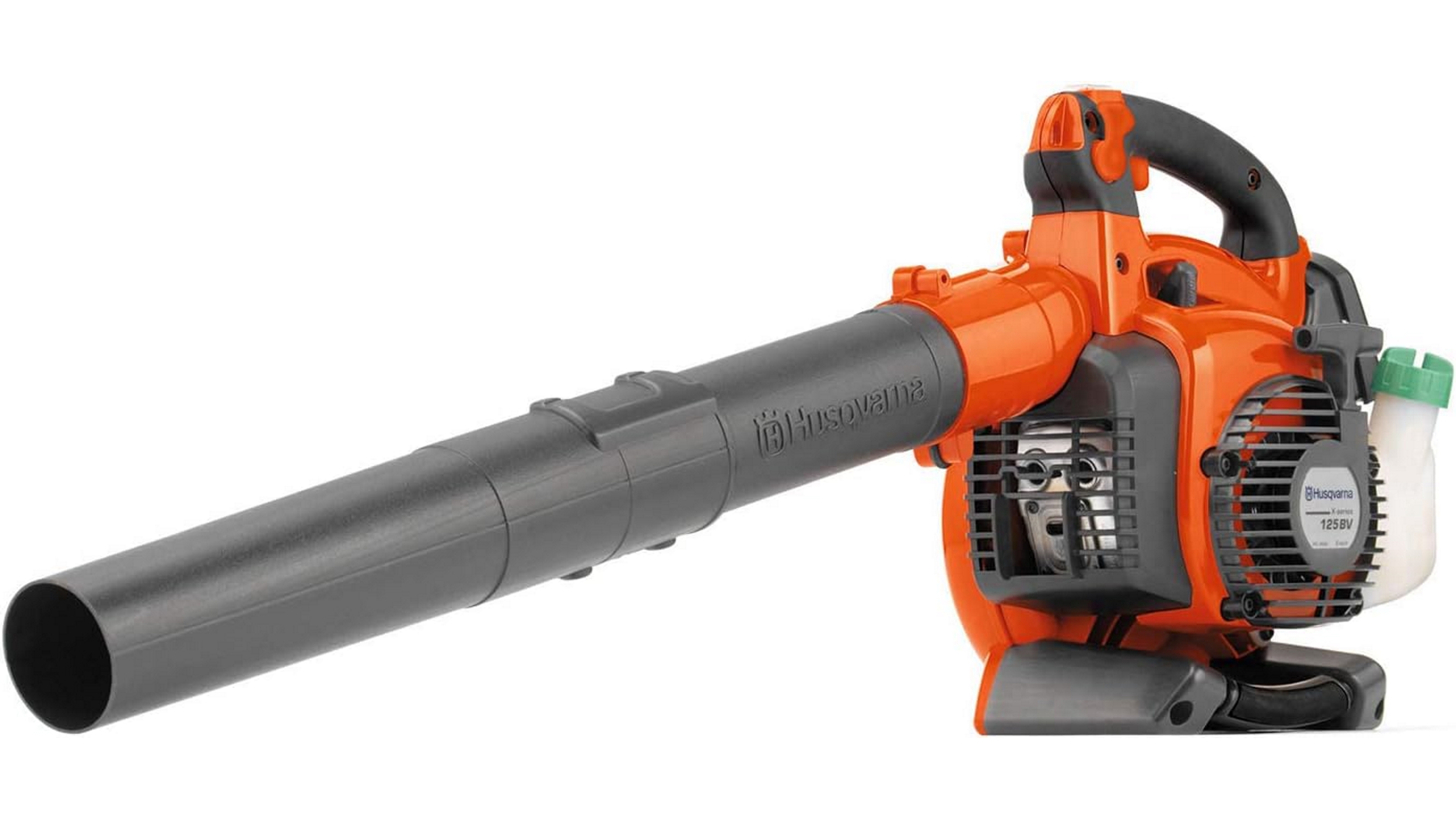
6. Husqvarna 125BVx
Specifications
Reasons to buy
Reasons to avoid
If you're looking for a gas-powered leaf blower that's easy to use and has a moderate power level, the Husqvarna 125BVx might be for you. With its ergonomic design, this leaf blower is very easy to maneuver, and the inline fan housing reduces stress on your arm and wrist, making it comfortable to use. With a hose length of 38.5 inches, the nozzle is closer to the ground than most of the other models we reviewed, so you can get rid of it more easily.
This leaf blower doubles as a yard vacuum. Its bag holds up to 17 gallons of debris and has a mulching function to reduce material and increase bag capacity. In our comparison of leaf blowers, Husqvarna is one of the loudest, reaching 97.9 decibels, so wear hearing protection.
This model offers power and performance that's about average compared to the other blowers in our lineup. The two-cycle engine produces 1.1 horsepower and has a maximum airflow speed of 170 mph. Although air speeds are 170 mph, this leaf blower can push leaves 17.5 feet, which is among the best among our leaf blowers.
The inline design keeps the airstream aligned with the handle to reduce wrist and arm stress, and the round and flat nozzles can be switched between to direct airflow at two different speeds. The fan on the left outside the body keeps this leaf blower balanced so it doesn't push back as you try to maneuver. But it's really expensive.
The best leaf blower for small yards
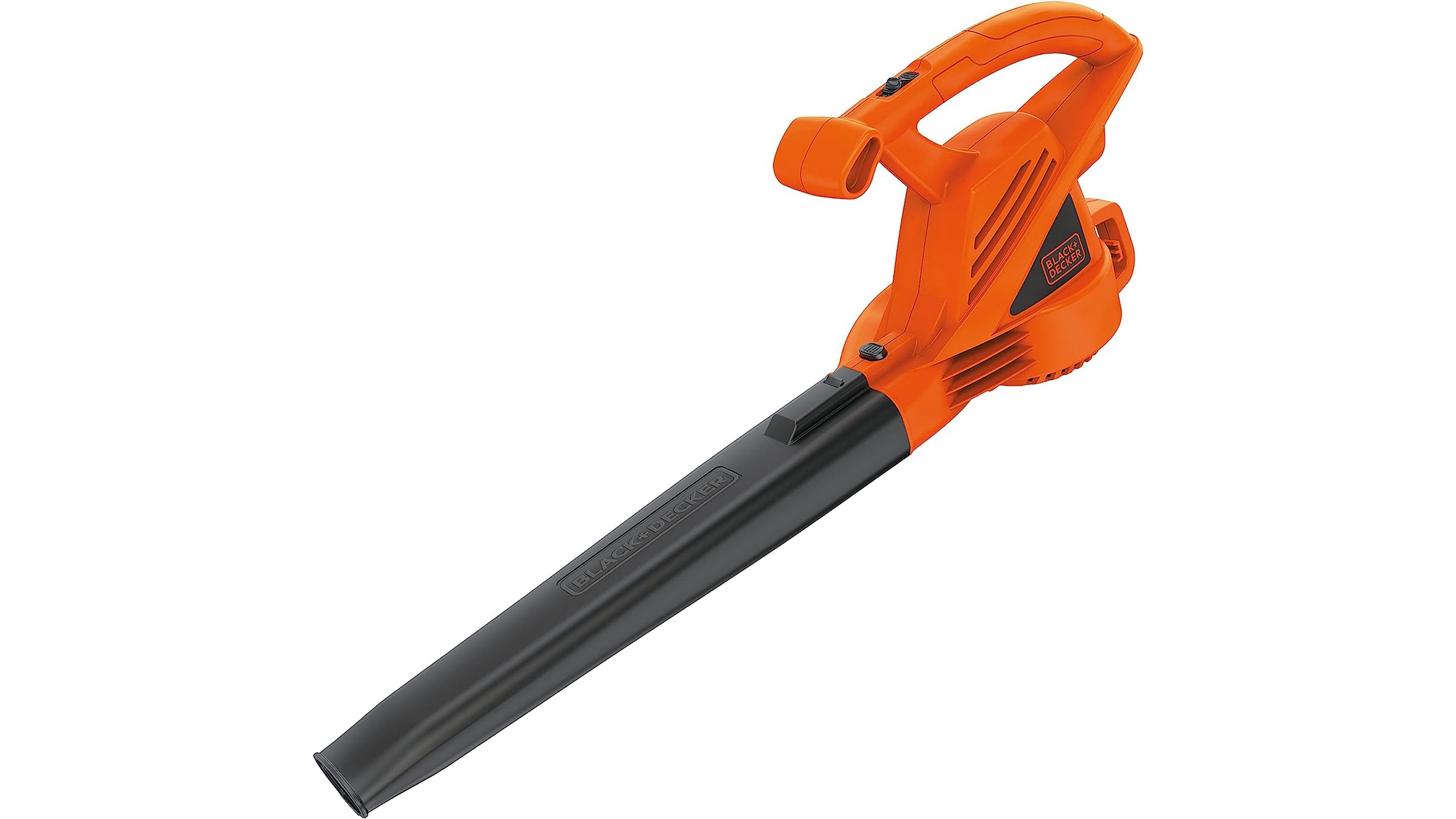
7. Black & Decker LB700
Specifications
Reasons to buy
Reasons to avoid
Despite lacking some of the bells and whistles of some higher-end models, the Black and Decker 3456 does the job without a fuss and is especially popular with older people.
With its lightweight design, the Black and Decker 3456 is easy to carry and maneuver, even for people with limited strength or mobility. It's also not too loud if you don't want to disturb your neighbors while you're working on your yard.
Another great thing about this leaf blower is its simplicity. It's easy to use - just plug it in, turn it on, and you're ready to blow away leaves and debris. This is a great choice if you want a no-frills product that works.
Of course, there are a few downsides to consider before purchasing. You'll need to provide your power cord, which is a minor inconvenience but worth paying attention to. It's also not meant for heavy-duty use, so you might want to consider a more powerful model if you have a lot of leaves to clear.
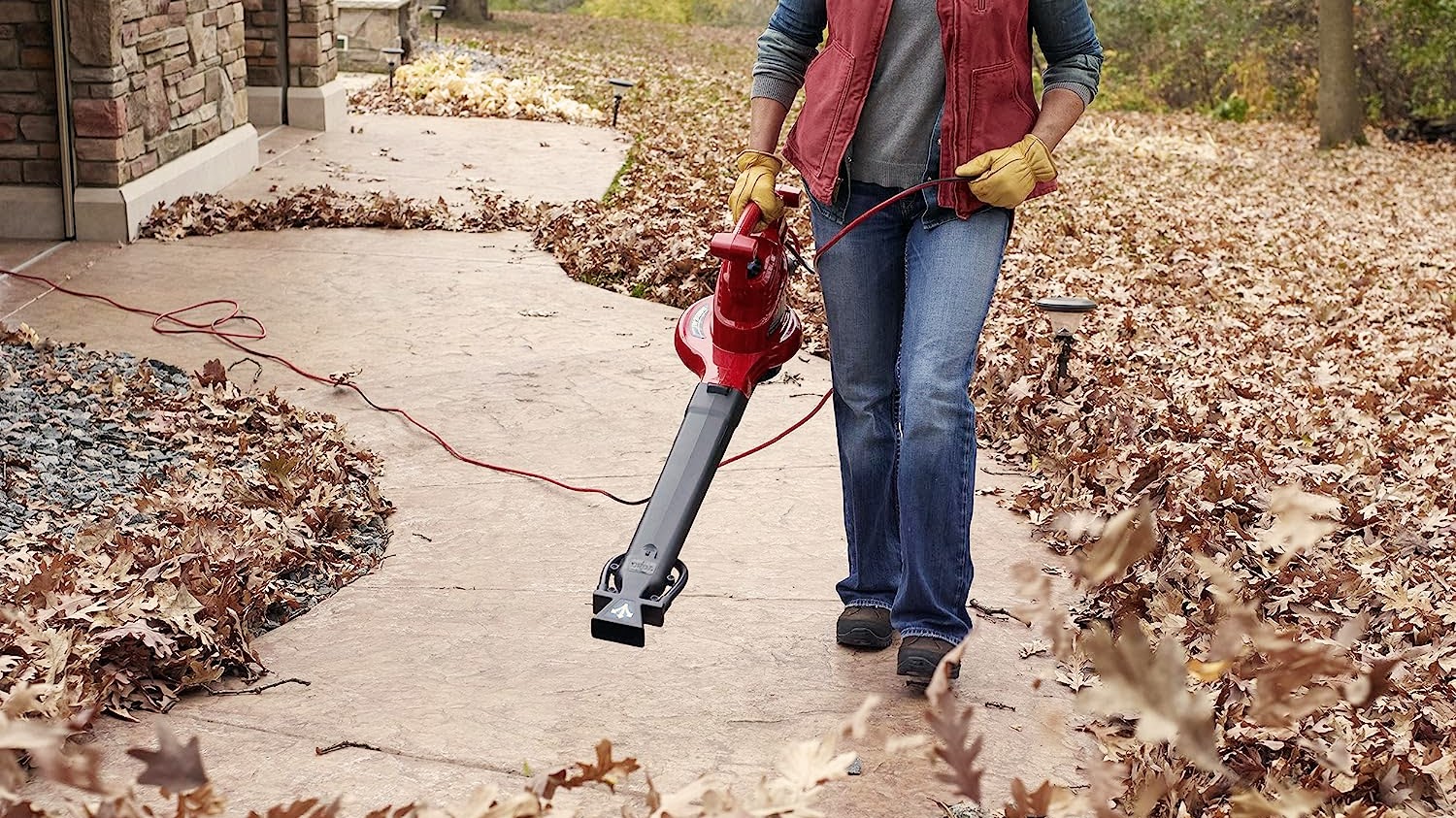
How to choose the best leaf blower for you
Choosing the best leaf blower involves considering several factors to ensure it meets your needs. Here's a guide:
Type of Leaf Blower
You can use handheld leaf blowers for small to medium yards. They're lightweight and easy to maneuver, so they're perfect for clearing leaves from driveways and patios. As for backpack leaf blowers, they're more powerful and best suited for larger areas. Walk-behind leaf blowers are the best choice for large properties and commercial applications because they distribute the weight evenly across your back and shoulders. Designed for heavy-duty work, they have the most power.
Power Source
In general, electric leaf blowers are quieter and lighter than other types. They're plugged in all the time, but they're limited in how mobile they can be. Leaf blowers powered by batteries are quieter and more portable than gas models, but they have a limited runtime. Gas leaf blowers, on the other hand, have the most power, so they're great for heavy-duty work. Despite providing complete mobility, they produce more noise and emissions.
Airflow and Speed
Look for models with adjustable speed settings to handle a variety of tasks. The speed is measured in miles per hour (MPH), while the airflow is measured in cubic feet per minute (CFM). A higher CFM is better for moving large piles of leaves, while a higher MPH is helpful for loosening stuck ones.
Features
If you're going to handle many different tasks, you'll want a model with adjustable speeds. A higher CFM is better for moving large piles of leaves, while a higher MPH is helpful for loosening stuck ones. The speed is measured in miles per hour (MPH), while the airflow is measured in cubic feet per minute (CFM).
Leaf blower FAQs
Are leaf blowers worth it?
Reviews
Echo eForce DPB-2500 review: a leaf blower as a snow removal tool?
Opinel Hand Pruning Shears review: are these the world’s most stylish secateurs?
STIHL HSA 60 Hedge Trimmer review: a battery-powered hedge trimmer that "gets the job done"
STIHL FSA 200 R String Trimmer review: quirky yet powerful, efficient and battery-powered
Husqvarna Combi Switch 330iK review: A versatile, all-in-one lawn tool
ENHULK 58V 16” String Trimmer review
Husqvarna Hedge Master 320iHD60 review: a cordless hedge trimmer on a mission to master hedges
Whether leaf blowers are worth it depends on many factors, like efficiency, environmental impact, and personal preference. Leaf blowers clear leaves and debris from lawns, driveways, and gardens. Leaf blowers can be a great investment for people who want efficiency and convenience. They save a lot of time and effort compared to traditional raking, especially on larger properties or areas with trees.
It's important to weigh the environmental and health factors. Leaf blowers, especially gas-powered models, have been criticized for their noise pollution and emissions. They make a lot of noise, and neighbors and wildlife can also be disturbed. Gas-powered models also pollute, releasing harmful pollutants like carbon monoxide and hydrocarbons. On the other hand, electric and battery-powered leaf blowers are quieter and more environmentally friendly, but they sacrifice some power.
Leaf blowers range in price from affordable electric models to more expensive gas-powered models. If you live in a region with heavy leaf fall, you might find the investment worthwhile, but if you're in a region with sparse trees, you might not need it.
How much does a leaf blower cost?
Whatever your budget, there is a leaf blower for you. Gas and electric models are available at a range of prices. The best electric leaf blowers offer good value for money and are typically cheaper than gas, with prices ranging between $60 and $110.
Plus, you don’t have to worry about maintaining the device. For these reasons, they're a great choice if you use the blower for light work in small yards. Bear in mind that they are not as powerful as gas alternatives. If they break, they’re difficult to repair, so you’ll likely have to buy a replacement.
A gas leaf blower may be worth the additional investment if you regularly maintain a larger yard. They offer more power than electric models to blast through huge piles of leaves. Our top picks range in price from $130 to $180. The options we reviewed require a mixture of gas and two-stroke oil. Remember to refill the fuel periodically, so keep some on hand.
How long to leaf blowers last?
It depends on many factors, including the type of blower, brand, maintenance practices, and frequency of use. Leaf blowers can last 5 to 15 years with proper care and maintenance.
Some people report their gas-powered models lasting up to 20 years, especially from a reputable, well-maintained brand. They're usually more durable and can last longer than their electric counterparts. These machines can last long if you clean the air filter, check the spark plug, and ensure the fuel is fresh.
Electric leaf blowers usually last 3 to 5 years with regular use. High-quality electric blowers from reputable brands may last longer, especially if stored and used correctly.
A battery-powered leaf blower's lifespan often depends on the battery. While the blower can last a long time, the battery might need to be replaced every few years, depending on how you use and charge it. It'll last longer if you take good care of your battery, like not overcharging it and storing it in a cool, dry place.
When is the best time to buy a leaf blower?
When looking for a great leaf blower deal, timing can dramatically impact the cost and availability of models. Late summer and early fall are great times to buy a leaf blower. Retailers often have a wide selection and competitive prices during this time as they prepare for fall cleanup.
It is also a good idea to look for deals during major sales like Cyber Monday and Black Friday. These events, which occur in late November, often feature significant discounts on a variety of products, including lawn care equipment like leaf blowers. However, if you have a specific model in mind, waiting for these sales can be a risk since stock may be limited.
You can also save a lot if you buy a leaf blower in the summer. Retailers may offer discounts to clear out inventory before new models arrive in the fall. This is a good time to save money while still having a good selection.
Sign up to receive the latest news, reviews, buying guides and deals direct to your inbox

Caroline is the Deputy Editor of Top Ten Reviews. Joining Future at the start of 2021, she has since served her time across all of the company’s home titles, including Real Homes, Ideal Home, Livingetc, and Homes & Gardens. Caroline has spent years testing out products for the home, which she trials in her cozy one-bedroom basement apartment in Suffolk, UK. She’s passionate about helping people choose the very best appliances, tech, and anything else that might make their lives easier, more cost-efficient, or just more fun.
